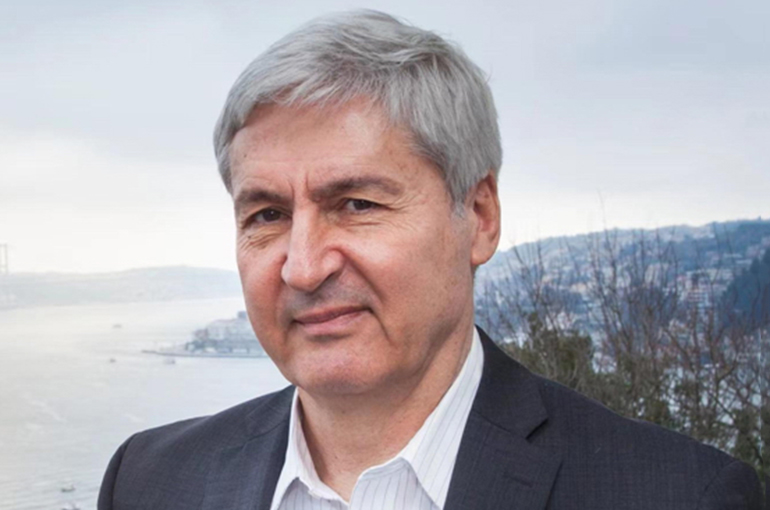 Lowering Interest Rates During High Inflation Is ‘Mother of All Problems,’ Turkish Economic Historian Says
Lowering Interest Rates During High Inflation Is ‘Mother of All Problems,’ Turkish Economic Historian Says(Yicai Global) June 14 -- “Trying to reduce interest rates at a time of high inflation is now the mother of all problems,” Turkish economic historian Şevket Pamuk said in a recent interview with Yicai Global.
“Trying to create miracles by fighting inflation with lower interest rates was not a good idea once,” said Pamuk, a professor at Bogaziçi University and authority on the economic history of the Ottoman Empire.
Central Bank of the Republic of Türkiye held its policy rate at 8.5 percent at last month’s rate setting meeting, after having gradually lowered it from 19 percent in late 2021.
Türkiye’s annual rate of inflation fell for a seventh month in a row in May to 39.6 percent, the lowest pace since December 2021, from 43.7 percent in April after President Recep Tayyip Erdogan vowed to provide free natural gas for households for a year.
“Experience in many parts of the world for a long time has shown that lower interest rates are not going to help resolve this kind of inflation problem in Turkey,” he said, adding that more reasonable policies are needed to deal with problems such as rising food costs and risks from new technology.
Pamuk is also the elder brother of Nobel Prize-winning novelist Orhan Pamuk, whose works include Silent House, The White Castle, and The Black Book.
Excerpts from the interview follows.
Yicai Global: Do you see any similarities between China and Turkey in terms of their economic development?
Şevket Pamuk: China and Turkey have a lot to learn from each other's histories, each other's experiences. In recent years, as incomes were rising, China has been a country with a better-than-average education system. So the education system has contributed to the success. China has also developed more and more advanced technologies.
Turkey has come a long way in the last two centuries, especially in the last century. But there are also issues and political and economic problems such as debt, which can teach us why many other developing countries are also having problems with economic development. Turkey can teach why many developing countries are still developing and have not developed already.
YG: What are your thoughts on interest rates in economic development?
Pamuk: Trying to reduce interest rates at a time of high inflation is now the mother of all problems.
I would say that more reasonable policies, more common-sense policies, would be a good place to begin, concerning the cost of food, concerning technology. Trying to create miracles by fighting inflation with lower interest rates was not a good idea once.
YG: What do you think of new technology? How do you think human beings should interact with it?
Pamuk: We have at least 200 years of history since the industrial revolution. Technological advances are both an opportunity for humankind and individual economies and at the same time a threat and danger.
The danger with the new technologies, as in the past, is the possibility of a loss of literally millions and millions of jobs. The new technologies such as AI can perhaps sometime in the near or medium-term future do the job of semi-skilled laborers. Will it also eliminate millions of jobs for semi-skilled workers?
One of the real lessons from history is that the path of development or the innovation of technology is not neutral. Those who have the power to shape the direction of technology are ultimately responsible for the path of the technology.
We can't let profit motives dictate where these new technologies will go, given the jobs these new technologies will destroy. Workers and professionals should have more power to shape the direction, to influence the direction of the new technologies. Otherwise, we will not have learned much from our history. Otherwise, we will create, again, lots of problems with these new technologies.
YG: What topics do you and your brother talk about?
Pamuk: Our mother is alive, so our mother is good conversation. We often meet with our mother to talk. We do a lot of talking about family history.
But beyond that, I would say when he talks about literature, I listen. And perhaps I talk more about history and economics, then he listens. And on political issues, I think we have a lot in common, and on some other political issues we learn to agree to disagree and keep silent on things that we disagree about.
When we write, we don't ask each other much. But of course, he knows a lot more about publishing, big publishing companies, and so on. And I'm sure he knows more about publishers in China than I do. So I can learn from him about publishing in China, and the audience in China.
Editor: Tom Litting